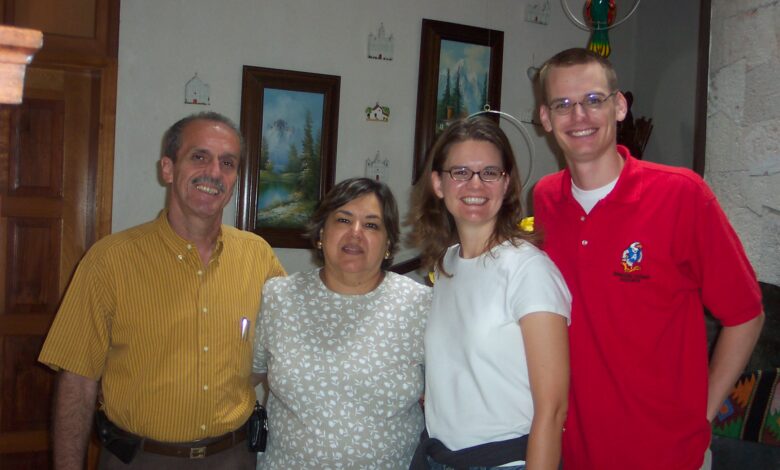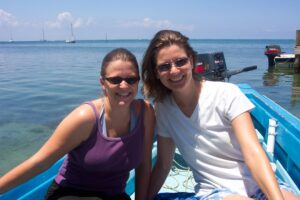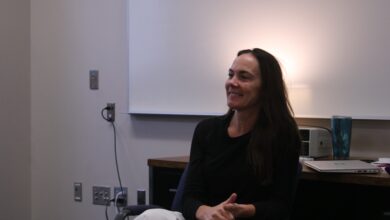
Author’s Note: For any student looking toward pursuing a higher education through college, phrases along the lines of “studying abroad will change your life,” are all too familiar. As someone who wants to study abroad, I try to treat these statements as true, especially after hearing personal stories from students who believe their experiences in studying abroad have changed their perspective. But what about teachers? Do they experience a similar shift in perspective after they’ve taught abroad to different students than they usually teach? I’ve decided to gather the experiences of teachers who have taught abroad in order to answer this question. For the people of BHS, here are their stories.
Social Studies teacher Tara Rosh started her teaching abroad career early, while still in college.
“I knew that I wanted to study abroad, so I decided to couple it with my student teaching,” Rosh said.
Rosh’s student teaching was done in Accra, Ghana, at the Ghana International School, during the Spring of 1998. Later on, Rosh taught abroad again—this time teaching English alongside her husband—in Honduras, at the American School of Tegucigalpa, from 2003 to 2005. Working at private international schools, she quickly became aware of the stark differences between these institutions and a US public school like BHS.

“I would say the biggest difference is [the students’] motivation. Their motivation is very, very high, and professionally, the expectations of you as a teacher are also very high,” Rosh said. “The students almost demand to learn more. Because they have really solid base knowledge, they want to go deeper in a lot of topics.”
Rosh felt students from both schools had this motivation; however, she felt it more so in the school in Ghana, which contrasted with the extremely wealthy school in Honduras.
“I saw this motivation in both schools, but I probably saw it more in the school in Ghana. It was truly an international school with kids from all over the world,” Rosh said. “The school in Honduras was probably 90% local population, so it was mostly controlled by the wealthiest families.”
To Rosh, the wealth that some students’ had was obvious. Parents would take extra precautions to protect their children, as they were the prime targets for robbery.
“[Honduras] is the third poorest country in the hemisphere, and the population that I was teaching were the richest kids in the entire country,” Rosh said. “The students we taught were so wealthy that some of them had bodyguards.”

Rosh noticed that students’ attitudes toward education usually stemmed from their parents, and this caused them to have ambitious post-graduate goals.
“There’s a lot of students whose parents work for embassies or different things like that, so education is really, really valued,” Rosh said. “International schools are very competitive. They are the students that are definitely going to Ivy League schools.”
Parents’ and students’ attitudes toward education were reflected in how they treated Rosh. As a teacher, she felt that she had a special place.
“I don’t want to give the impression that I feel disrespected as an educator [in the United States], but I think it’s different when you’re in a very small, elite environment,” Rosh said. “By the communities [in Ghana and Honduras], I felt very well respected as an educator.”
When Rosh and her husband returned to the United States after their two years in Honduras, they planned on teaching abroad again. But the decision to start a family ended up changing their plans.
“Once [my husband and I] got back to the States, we decided to start a family. We always thought, ‘Okay, we’ll get the ball rolling, and our kids will naturally want to go overseas because that’s what we wanted to do,’” Rosh said. “Little did we know that both of our children would absolutely love living in Monticello. [When we mentioned moving countries], they completely melted down and insisted that we stay. Our kids were a big motivating factor for us to stay in the area here.”
After a couple of years of teaching at Monticello, Rosh moved to teaching at BHS, where she plans to teach until the end of her career. Even though she hasn’t taught abroad since Honduras, her experiences have informed her teaching today.
“The demands [in Ghana and Honduras] were so high for rigor and interaction with the material. In order to keep up with the demands, I had to become a much more innovative teacher,” Rosh said. “I think that’s carried over to how I teach here. I always set a goal for myself to have more student interaction. I don’t know how often I reach that goal, but I do definitely see that as a priority. [In my class], you just can’t sit there the whole time and not be participating.”
As a former student of Rosh, I know she implements these innovations. Informed by her experiences with students very different from ours, her history classes are driven by in-class discussions and intense analyses of primary sources.
After teaching abroad and understanding the implications of her experience, Rosh has gained a new sense of appreciation and enjoyment in travel. This summer, she was offered a teacher trip to Mongolia, where she would learn about horses’ impact on culture and trade. Rosh hopes to continue seeking out opportunities to travel and teach abroad after she retires from BHS.





